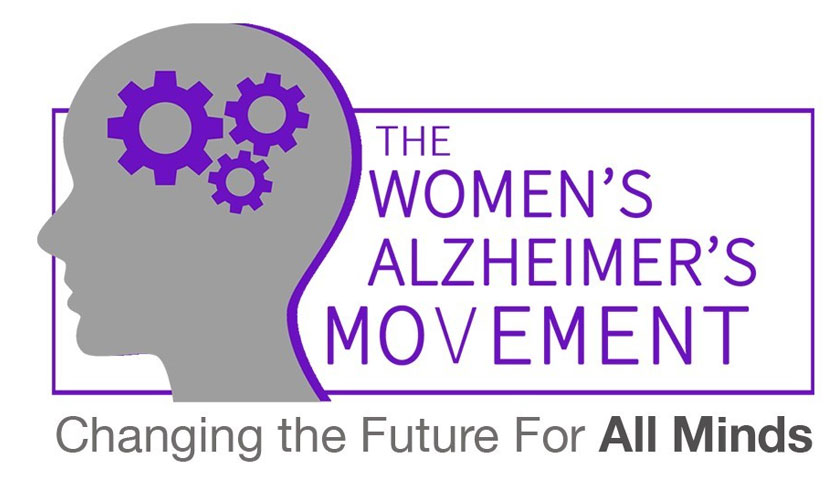The Women’s Alzheimer’s Movement™ (WAM) is proud to announce today that it has awarded seven research grants to leading scientific institutions actively seeking to understand why Alzheimer’s disease disproportionately affects more women than men. This year’s grants bring WAM’s research funding total to $1.5 million in just three years since the program began. In addition to expanding studies already underway, this year’s grants will also fund promising and innovative new science at several of the nation’s leading research institutions.
The 2018 WAM grant recipients include:
- Center for Innovation in Brain Science, University of Arizona
- Alzheimer’s Association, Women’s Alzheimer’s Research
- Ann Romney Center for Neurologic Diseases at Brigham & Women’s Hospital
- Lou Ruvo Center for Brain Health, Cleveland Clinic
- Weill Cornell School of Medicine
- Alzheimer’s Disease & Memory Disorders Program, Weill Cornell
- Institute for Memory Impairments and Neurological Disorders (MIND), University of California, Irvine
“These foundational grants allow us to do pioneering work and start research into entirely new areas,” said Laura M. Cox, Ph.D., of the Ann Romney Center for Neurologic Diseases Brigham & Women’s Hospital, one of this year’s recipients who will be using the grant to explore the therapeutic potential in harnessing the microbiome to treat Alzheimer’s disease. “We’re deeply grateful for the support of the Women’s Alzheimer’s Movement.”
WAM recognizes that consideration of sex and gender differences is significant to Alzheimer’s research at all levels, since women are at an increased risk for the disease. WAM founder Maria Shriver says that by focusing research on the largest group affected by Alzheimer’s, the hope is that researchers will unlock mysteries surrounding the disease and get closer to a treatment or cure for all.
“Two out of every three brains with Alzheimer’s belong to women, and no one knows why that is,” said Shriver. “Since its inception, WAM has been committed to understanding why women are at an increased risk for this disease and through grants like these, we are able to support top scientists who are conducting groundbreaking gender-based research. The ultimate goal of WAM is to change the future for all minds — and funding women-focused research is a critical step to achieving that goal.”
Funding will permit many notable firsts. One grant will establish the first Alzheimer’s Prevention Clinic Consortium at the Alzheimer’s Prevention Clinic at Weill Cornell School of Medicine. The WAM/Alzheimer’s Prevention Clinic Consortium will be administered by Dr. Richard Isaacson and will launch with three other medical centers that support Alzheimer’s prevention interventions.
Another grant will fund the first WAM Fellowship for Sex Differences Research in Alzheimer’s Disease at the Lou Ruvo Center for Brain Health at the Cleveland Clinic. The WAM Fellow will be charged with analyzing clinical patient data throughout the Center for the impact of sex and gender differences in Alzheimer’s.
The 2018 grants were also awarded to select past recipients who have already been advancing groundbreaking gender-based research. A grant to Alzheimer’s Association, Women’s Alzheimer’s Research, the first-ever research initiative focused on gender differences, will support a study of nutrition and environmental contributions to cognitive decline and dementia over the course of the female adult life.
“Through this grant, researchers will be able to ask questions about the contribution of nutrition and environment factors over a period of time, which can ultimately help inform treatment and prevention protocols,” said Dr. Heather Snyder, senior director, medical & scientific relations, Alzheimer’s Association.
For the Center for Innovation in Brain Science at the University of Arizona, the 2018 grant permits further exploration into the impact of hormone therapy on Alzheimer’s disease in women, specifically as related to the impact that breast cancer therapies might have on developing Alzheimer’s disease.
“It is an honor to receive a third grant from The Women’s Alzheimer’s Movement to build upon the research the Center for Innovation in Brain Science began in 2016,” said Dr. Roberta Brinton, the Center’s inaugural director. “The grants allow us to research and discover critical information for women considering the long-term impact of hormone interventions and how it impacts their risk of developing Alzheimer’s disease.”
The grants were made possible in large part by funds raised during WAM’s 2018 Move for Minds®, a nationwide crowdfunding and awareness-building campaign held in June in partnership with Equinox Sports Clubs, and through other annual fundraising.
To learn more about the Women’s Alzheimer’s Movement’s mission and how to get involved, please visit http://thewomensalzheimersmovement.org.



